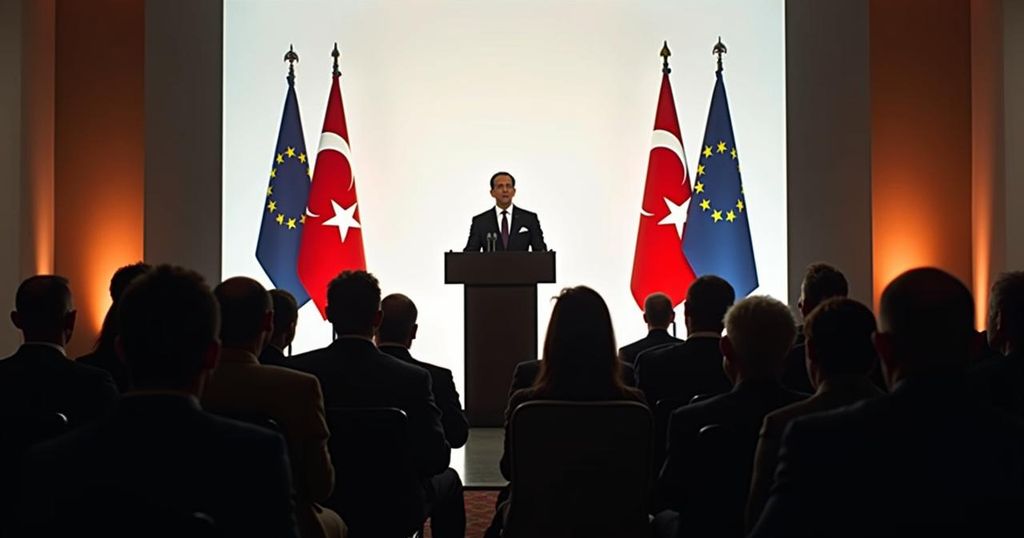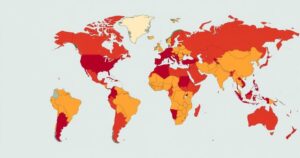Dr. Jaishankar’s UNGA Address: Clarifying India’s Stance on Pakistan’s Deceptive Diplomacy

In his UNGA speech, Indian External Affairs Minister Dr. S. Jaishankar condemned Pakistan’s duplicity in diplomatic interactions and emphasized that India’s response to aggressions from Islamabad will extend beyond military measures. The speech followed India’s call for revising the Indus Water Treaty due to cross-border terrorism, highlighting the impermissibility of dialogue without addressing terrorism as a precondition. Jaishankar’s comments reflect a decisive shift in India’s diplomatic engagement concerning Pakistan’s longstanding hostility.
In his recent address at the United Nations General Assembly (UNGA), India’s External Affairs Minister, Dr. Subrahmanyam Jaishankar, articulated a strong stance against Pakistan’s longstanding policy of employing a dual approach regarding its relations with India. The context of Jaishankar’s remarks follows India’s call for modifications to the 1960 Indus Water Treaty, a move prompted by ongoing concerns over cross-border terrorism that has impeded India’s access to its rightful water allocations from the treaty. Dr. Jaishankar emphasized that India’s response to Pakistan’s actions would encompass measures that extend beyond military capabilities. This declaration serves as a warning that Pakistan’s actions, particularly its aggressive rhetoric and continued support for terrorism, will evoke a strong and comprehensive response from India, which now aims to redefine its diplomatic engagement with Islamabad. Jaishankar’s stern reprimand to Pakistan was evident as he dismantled narratives that sought to link the situations in Gaza and Kashmir, a tactic employed by Pakistan’s Prime Minister, Shehbaz Sharif. The Indian minister articulated how Pakistan’s economic standing has been compromised due to its focus on religious radicalization rather than constructive governance, thus delivering a pointed critique of Pakistan’s internal challenges. He reiterated that any dialogue between India and Pakistan must first address the pressing issue of cross-border terrorism, underscoring that such disruptions will no longer be tolerated. In light of upcoming engagements at the Shanghai Cooperation Organization (SCO) summit scheduled to take place in Islamabad, Dr. Jaishankar’s comments serve to establish clear expectations for future interactions, signaling that India’s resolve in countering Pakistan’s provocations will be unwavering and decisive. Moreover, the narration of Pakistan’s historical attempts to portray itself as a victim in the Kashmir dispute, while simultaneously engaging in hostile activities against India, has been challenged by the current Indian leadership. In responding to Pakistan’s diplomatic maneuvers, Jaishankar’s address illustrates the Modi administration’s commitment to remaining vigilant and responsive to Pakistan’s multilayered tensions. Overall, Dr. Jaishankar’s speech at the UNGA not only confronted the challenges posed by Pakistan’s double game but also hinted at a broader shift in India’s diplomatic posture, indicating a necessary recalibration as the Modi government aligns its actions with its national security agenda. Ultimately, Jaishankar’s remarks reveal that the Indian government possesses a clear understanding of Pakistan’s strategic duplicity and reinforces the notion that India will not tolerate attacks that compromise its sovereignty or security.
The background of this situation stems from the historical complexities of Indo-Pak relations, particularly regarding the Kashmir dispute and the Indus Water Treaty established in 1960. The treaty was a result of several years of negotiations to govern the sharing of river waters between India and Pakistan post-independence. However, rising incidents of cross-border terrorism and militancy, particularly in Jammu and Kashmir, have sparked debate about the effectiveness and relevance of the treaty. Pakistan’s diplomatic engagements often include efforts to internationalize the Kashmir issue, attempting to align it with global conflicts such as the situation in Gaza, thereby aiming to garner support for its narrative against India. The Modi government’s approach has been to counter these narratives assertively, illustrating that India’s strategic interests will be defended, even at multilateral forums such as the UN.
Dr. Jaishankar’s address at the UNGA serves as a pivotal moment in India-Pakistan relations, highlighting India’s determination to confront assertions made by Pakistan while reiterating its commitment to national security and addressing the threats posed by terrorism. The Modi government’s clear stance signifies a shift towards a more assertive foreign policy, negating any notions of Pakistan’s victimhood and demanding accountability for its actions. As future dialogues loom with Pakistan, it remains critical for India to set a firm agenda that prioritizes its security imperatives.
Original Source: www.hindustantimes.com






